Veterinary clinics in Singapore forced to raise fees amid soaring costs, talent shortage
A severe shortage of vets, both in Singapore and globally, has made it challenging for industry players to hire and retain talent, despite offering higher salaries.
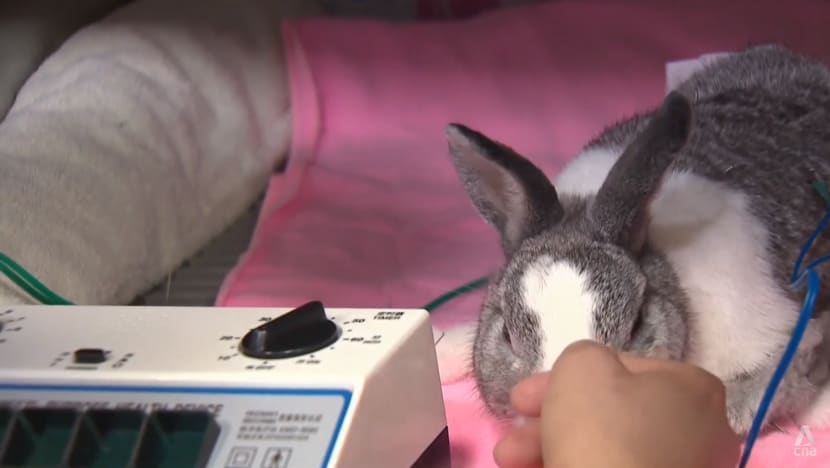
A vet tends to a rabbit at a veterinary clinic in Singapore.

This audio is generated by an AI tool.
SINGAPORE: Veterinary clinics in Singapore have had to increase their fees by up to 20 per cent over the last two years, due to rising of medical supplies and manpower costs, industry players said.
A severe shortage of vets, both in the country and globally, has also made it challenging for clinics to hire and retain talent, despite offering higher salaries.
As pet ownership continues to grow in Singapore, vets are calling for more to be done to support the sector.
VET STUDENTS IN DEMAND
Mr Ryan Ong, 24, has always loved animals, and is taking it to the next level by learning how to care for them.
He is a veterinary student taking part in a combined programme between the National University of Singapore (NUS) and the University of Melbourne.
There are currently no veterinary courses available in Singapore, explained Mr Ong.
Temasek Polytechnic offers a diploma in veterinary technology, which allows one to be a veterinary technician or nurse upon graduation and support vets in their daily tasks, but stop short of becoming an actual vet, he said.
Before heading back to Australia for his next semester which starts next month, he has decided to do a placement with a clinic near his home in Singapore, called Advanced VetCare Veterinary Centre.
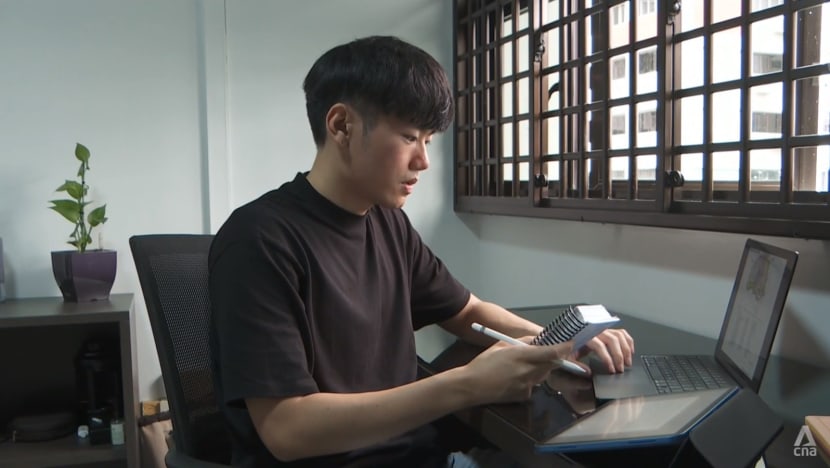
“I wanted to experience what it's like working in a general practice and also an emergency clinic,” Mr Ong told CNA.
“Furthermore, I wanted to experience what it's like working in a vet clinic with an increased caseload.”
Like many others in his field, Mr Ong is considering working overseas after he graduates, as he will be able to specialise in areas not commonly offered in Singapore.
Due to a shortage of vets globally, graduates like him will also be in high demand.
SHORTAGE OF TALENT
Local clinics told CNA this is part of the reason they are having trouble finding new talent.
Dr Cathy Chan, director of The Animal Doctors clinic, told CNA: "I would say that applicant rates have definitely gone down and this is across the board, not just within Singapore, but actually what I've heard from practice managers overseas as well. It's a global issue.”
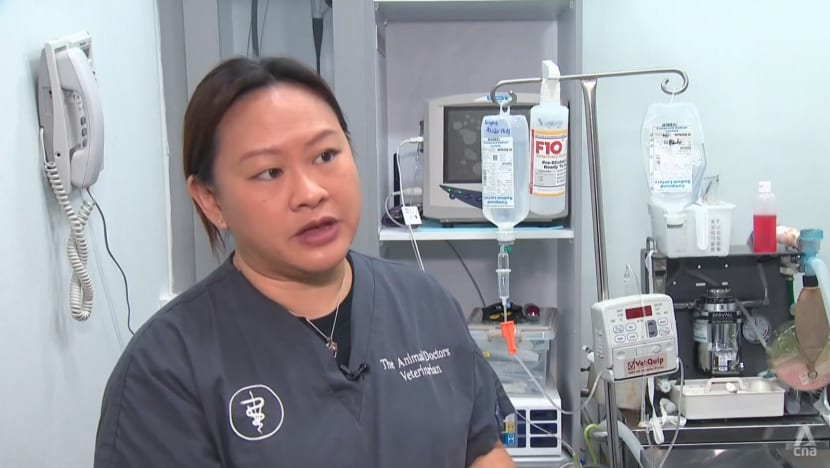
Some clinics have not had any applicants at all in the last two to three years, added Dr Chan, who is a Vet Council Member at the Singapore Veterinary Association (SVA).
Adding to the challenges are vets who are quitting the sector entirely, citing the mental toll in the line of work.
Since the COVID-19 pandemic, pet ownership has risen by about 30 per cent.
This has led to some vets citing stressful workloads, and often, bad treatment by pet owners.
To attract and retain talent, clinics told CNA that they have had to raise salaries, with the increased manpower cost getting passed down to customers.
One clinic told CNA it is even offering new vets the same amount of salary as a vet with 10 years of working experience.
MORE HELP FOR COPING WITH COSTS
Dr Chan said her clinic has had to increase fees by some 20 per cent over the last few years, to cope with the costs and circumstances.
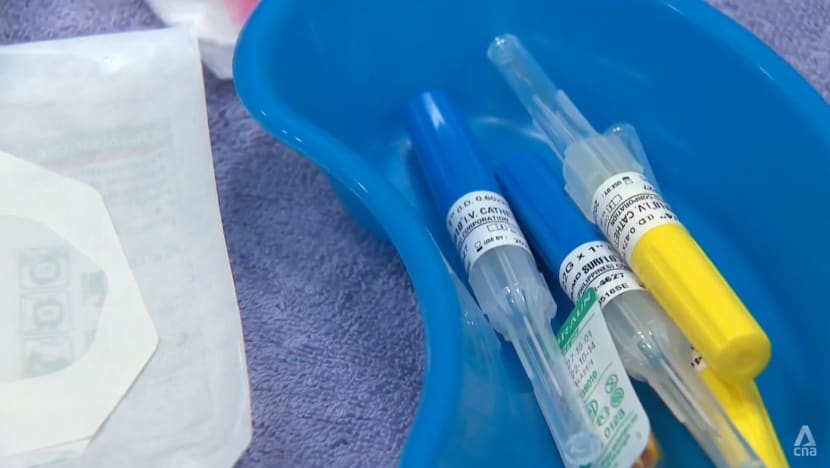
"The general feeling is that it's costly and all the money goes to the practice owner. I would say that that's basically fake news,” she said.
“The cost is really significant with running a clinic without any subsidies. Overheads are one thing (and) the medical costs are really high."
As a council member of the SVA, Dr Chan hopes more can be done to address and alleviate these industry-wide issues, such as relaxing hiring policies for the sector.
“Our manpower requirements for hiring foreign talent is actually really strict and quite harsh for the type of work we do, because we don't really have the same pool here to make up the numbers,” she noted.
“If we did, we would definitely always hire locals, but the problem is that there is a lack (of talent). It's a big problem that we have all been lobbying for."
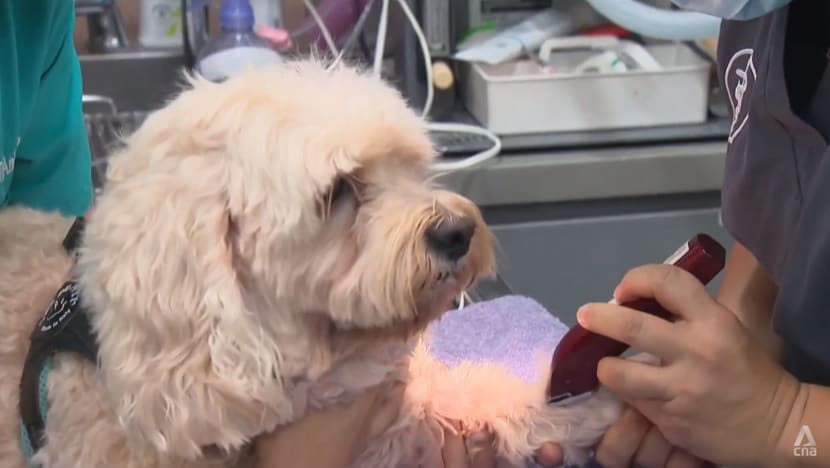
To attract new blood, Dr Chan said her clinic is working towards offering better work-life balance and mentorship opportunities.
Mr Ong said that compared to about a decade ago, the veterinary industry in Singapore has progressed a lot, with structured mentorship programmes to let fresh graduates shadow experienced vets in general practice first.
“This will actually allow you to pick up and gain more experience in areas such as how to communicate better with clients, and also how to do certain types of surgeries better,” he explained.
Mr Ong said another factor turning people off from entering the veterinary sector is the “significant cost” of pursuing studies in the field.
















